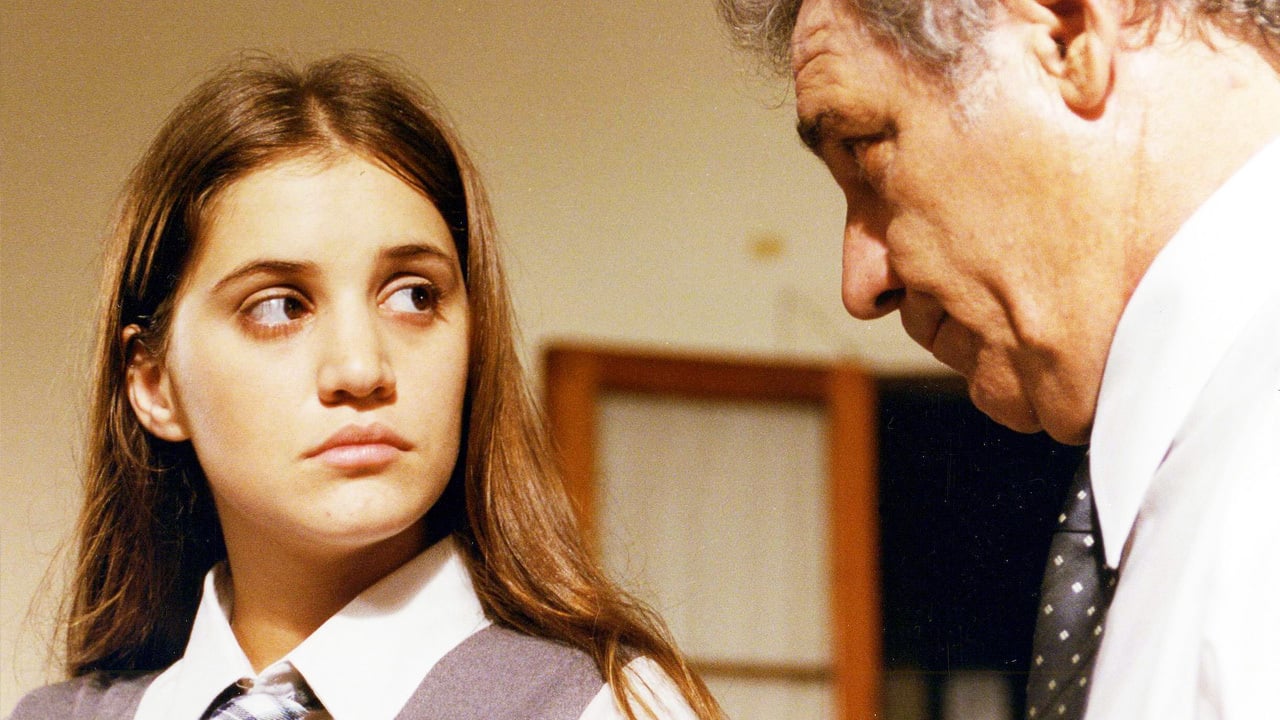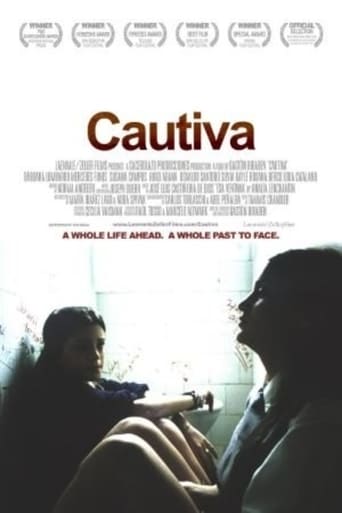

Plot so thin, it passes unnoticed.
... View MoreThe plot isn't so bad, but the pace of storytelling is too slow which makes people bored. Certain moments are so obvious and unnecessary for the main plot. I would've fast-forwarded those moments if it was an online streaming. The ending looks like implying a sequel, not sure if this movie will get one
... View MoreMostly, the movie is committed to the value of a good time.
... View MoreThis is one of the best movies I’ve seen in a very long time. You have to go and see this on the big screen.
... View MoreCautiva (2005)Set in a period about ten years before its release, but dealing with issues of the Argentine dictatorship and disappearances from the late 1970s, this is a remarkably realistic and important look at one girl's astonishing involvement with the worst of it.And if it sometimes is terribly linear in its storytelling, following this girl's realizations one after another (and her emotional burden as it grows and grows), the movie is still so convincing and sad and filled with national (Argentine) guilt it is totally riveting. Anyone interested in the horrors of Latin American dictatorships (left and right wing) and in the victims and survivors, this is a must-see.Anyone else just interested in the plight of a single sixteen year old girl in a whirlwind of suspicions and lies and a few seemingly tender sympathizers, and see her cope and rise above and maybe, in fact, find a small amount of truth for herself, this is also really rewarding. You might find parallels in similar South American films such as "Machuca" but there is also a weird resemblance to many touching holocaust films that center on the plight of children whose identities get changed and whose histories are disrupted. Not to mention the tragedy of parents killed by cruel governments.The filming here is really good but never something you'd notice (except one brief dream scene). What you will notice is the gravity and depth of the lead girl's performance. Barbara Lombardo was only 14 for filming (unlike a lot of movies where older girls play younger parts) and she alone makes the movie poignant and serious.Oddly, this is officially a 2005 movie with its original Spanish title, and yet it gets listed here as "Captive" with a 2004 date. There is a lot left unsaid here, but in a way that's sufficient. It makes you want more.
... View MoreThis film hearkens back to the magnificent The Official Story, and it helps form a body of work for humanity that might be filed under the "never forget" category. Artistically, it's not a mature work, and is imperfect. Emotionally, it is wrenching. The brief mentions of American training and support of the brutal Argentinian military junta, were uncomfortable; they raised feelings about how much damage this country has aided and abetted in recent years. There's a note at the end that explains that the criminals responsible for "the disappeared," and the damaged children at the heart of the movie, have never been brought to justice. Well, here too. The people responsible for overthrowing Allende, for carpet bombing in Vietnam, for destabilizing and supporting the contras in Nicaragua, and on and on, are still invited to the White House for state dinners.
... View MoreWe take our heritage for granted. But, what is we are slapped in the face and told that the "parents" we have known for 15 years were not real, and our real parents were "disappeared" by a dictatorial regime? Of course, the film reminds us of the shame of our complicity in these regimes by showing Henry Kissinger snuggling up to the dictators.Bárbara Lombardo (The Motorcycle Diaries) in her first feature film, captivates us as the teen faced with this harsh reality in Argentina. The pain she feels is obvious and she is torn from the only family she has ever known and learns to live with strangers, who are, in fact, her real relatives.Television actress, Mercedes Funes, also was great as her new friend, who parents were also "disappeared." A really oustanding film by Gaston Biraben; a shameful part of Argentine and US history that cries out for justice that will never come.
... View MoreCAUTIVA ('Captive') is a very effective film by young writer/director Gaston Biraben who has taken to task the impact of Argentina's 'Dirty War' of the late 1970s and succeeds in making a very personal story out of the horror of the 'desaparecidos' tragedy that stole from Argentina some of its brightest minds - and 'reassigned' the children of these 'disappeared ones' who were born in the prisons to political friends of the dictatorship. While the concept is gruesome as history and as content, Biraben manages to recreate that terrifying period of time in terms of the present. This retrospective study makes a huge impact.Cristina Quadri (the deeply impressive Bárbara Lombardo) lives with her parents in Buenos Aires, attending a Catholic girls' school, seemingly a happy young teenager. One regular day she is called to the principal's office and told she must visit a judge, a frightening concept for a young girl who is forced to go without informing her parents. The judge informs her that she is not 'Cristina Quadri' but instead 'Sofía Lombardi', the daughter of a couple who 'disappeared' in 1978 as political prisoners. A recent blood test Cristina/Sofia thought was a follow-up for a post-op check was actually a test to match her blood with that of the newly discovered true parents' family. Cristina, stunned by her lack of true identity, confronts her 'adopted parents' and struggles with the officials who insist she be returned to her blood relatives. Cristina becomes close to another 'adopted' girl and the two explore their roots, finding that they were born in prisons and then given to police officials to be placed in homes. The transition from adopted to blood family is the path the film explores: despite the comforts of present life the girls must know their origins to fully realize their identities.The cast is uniformly strong, the concept of the film works well as Biraben snaps us back and forth between the World Cup Soccer Game in Buenos Aires in 1978 that contrasts so gravely with the concurrent underground disappearance of the intellects of the country, and the performance by Lombardo holds the credibility of the story well. There is a fine music score by José Luis Castiñeira de Dios that combines a suite for cello and piano with elements from Mozart's Requiem very effectively. This film has been awarded many prizes since its appearance in 2003: the prizes are justly deserved. Highly recommended viewing. Grady Harp
... View More